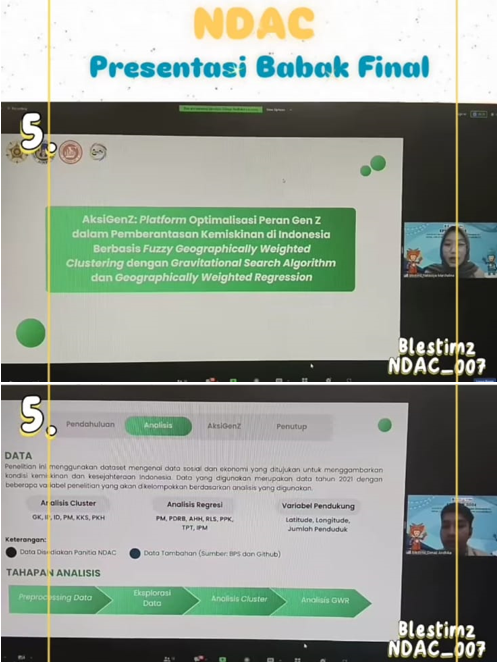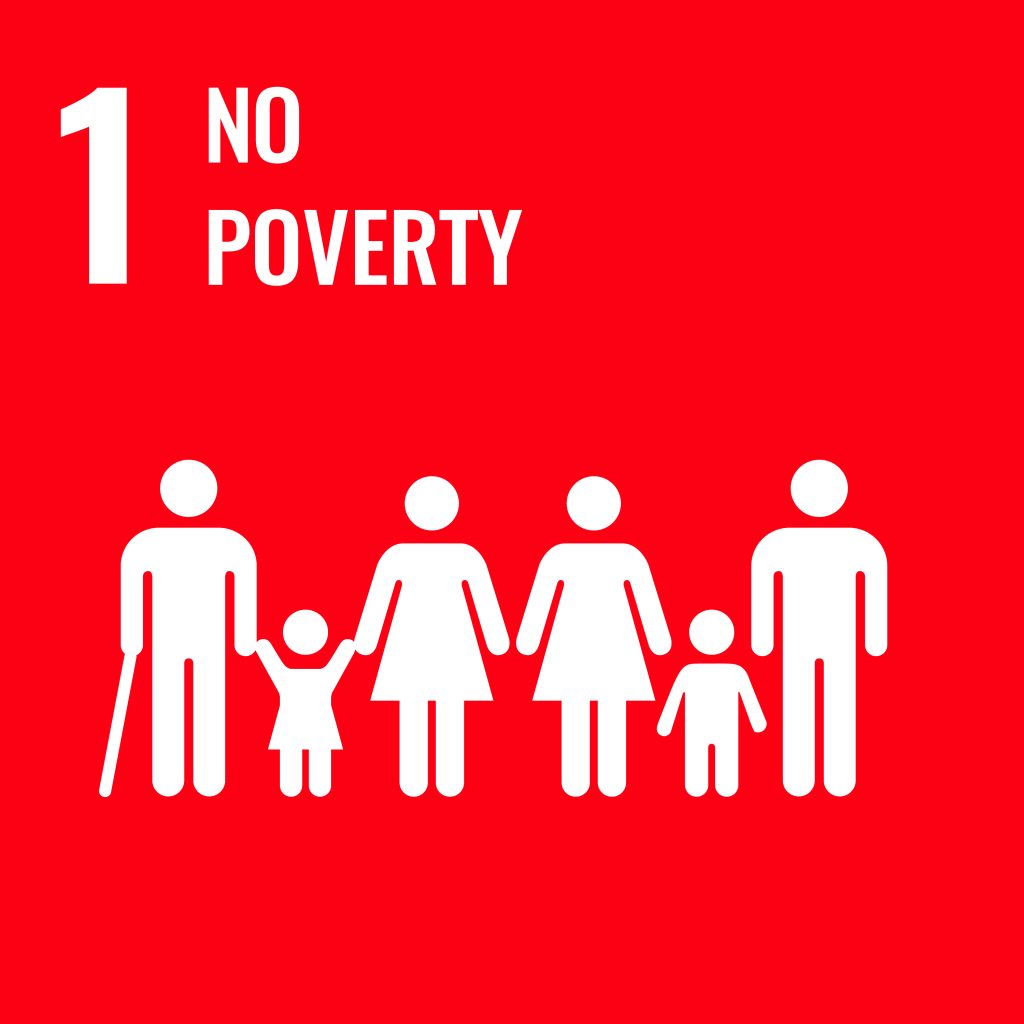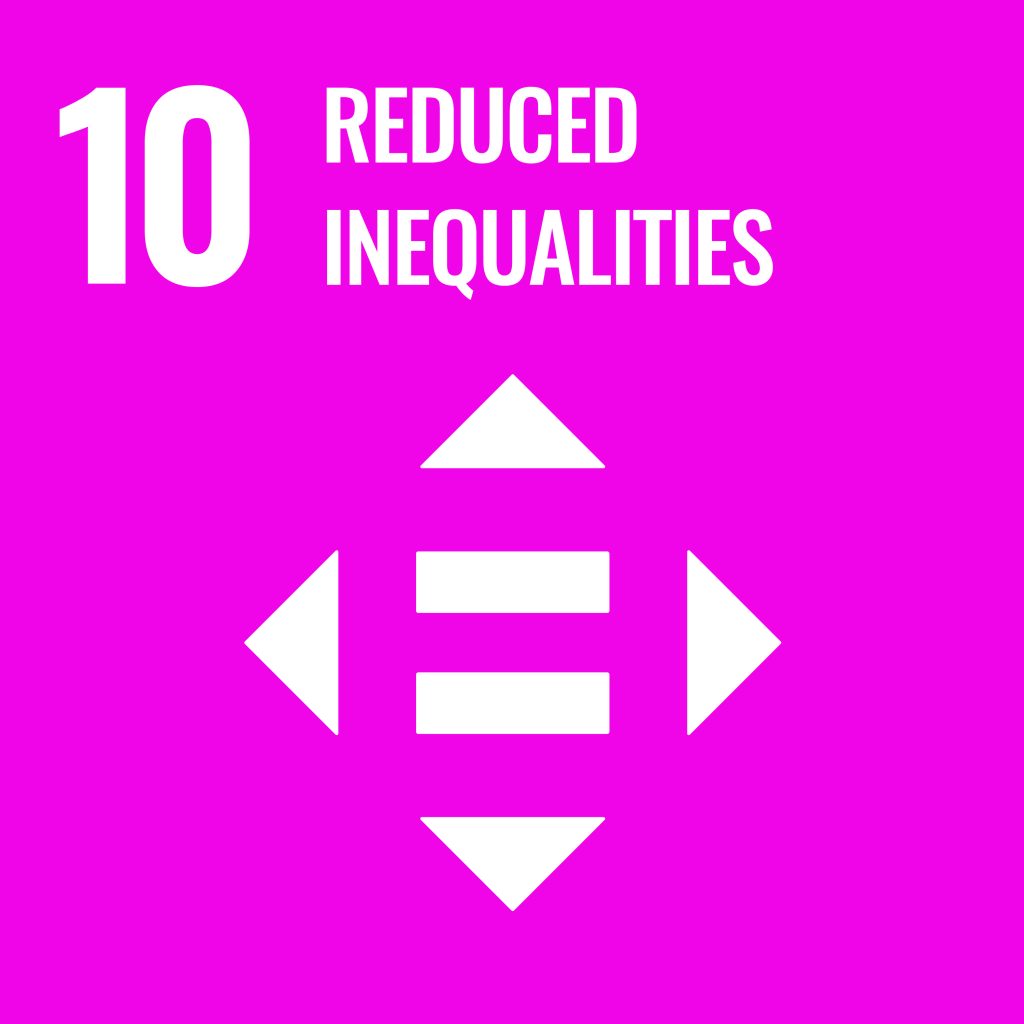 AksiGenZ is a web-based platform developed by Natassya Marchelina Cahya Setyaji and Dimaz Andhika Putra, 2022 Statistics students from Gadjah Mada University. Using the Fuzzy Geographically Weighted Clustering and Geographically Weighted Regression (GWR) methods, this platform aims to optimize the role of Gen Z in the efforts to eradicate poverty in Indonesia. AksiGenZ maps poverty data segmented by province through cluster analysis and identifies significant factors at the district level that influence poverty conditions through spatially weighted regression. AksiGenZ presents data-driven solutions to tackle poverty, one of the complex social issues in Indonesia. Through cluster analysis, this platform divides provinces based on poverty levels. Next, spatially weighted regression analysis for each cluster helps identify the factors causing poverty at the district level, allowing for more specific and focused solutions to be developed.
AksiGenZ is a web-based platform developed by Natassya Marchelina Cahya Setyaji and Dimaz Andhika Putra, 2022 Statistics students from Gadjah Mada University. Using the Fuzzy Geographically Weighted Clustering and Geographically Weighted Regression (GWR) methods, this platform aims to optimize the role of Gen Z in the efforts to eradicate poverty in Indonesia. AksiGenZ maps poverty data segmented by province through cluster analysis and identifies significant factors at the district level that influence poverty conditions through spatially weighted regression. AksiGenZ presents data-driven solutions to tackle poverty, one of the complex social issues in Indonesia. Through cluster analysis, this platform divides provinces based on poverty levels. Next, spatially weighted regression analysis for each cluster helps identify the factors causing poverty at the district level, allowing for more specific and focused solutions to be developed.
The use of AksiGenZ contributes to the achievement of SDG 1, “No Poverty,” by providing tools for Gen Z to understand and address the causes of poverty in various regions. With a data-driven approach, this solution enables the implementation of more effective and targeted interventions.
In the development process, Natassya and Dimaz went through various stages of research. Starting from analyzing the provided data, they developed an innovative method that encompasses both theoretical and practical aspects, and realized it in the form of an easily accessible prototype. This work reflects the urgency and relevance of poverty alleviation in Indonesia, especially by involving the role of the younger generation through technology-based solutions.
AksiGenZ’s innovation also supports SDG 10, “Reduced Inequalities,” by helping to identify socio-economic gaps between regions. This comprehensive analysis enables the government and society to develop fairer policies in the effort to reduce poverty.
AksiGenZ successfully secured second place in the National Data Analysis Competition (NDAC) EPSILON 2024, a national-level competition organized by Universitas Negeri Padang, which was participated in by 21 teams from various universities. This achievement demonstrates the great potential of data-based work in solving social problems, while also opening up opportunities for the younger generation to play an active role in national development.

 Keywords: Gen Z, Weighted Regression, Mathematical Innovation, Student Achievement
Keywords: Gen Z, Weighted Regression, Mathematical Innovation, Student Achievement
Author: Natassya Marchelina Cahya Setyaji
Editor: Endang Sulastri
Photo: Dimaz Andhika Putra
